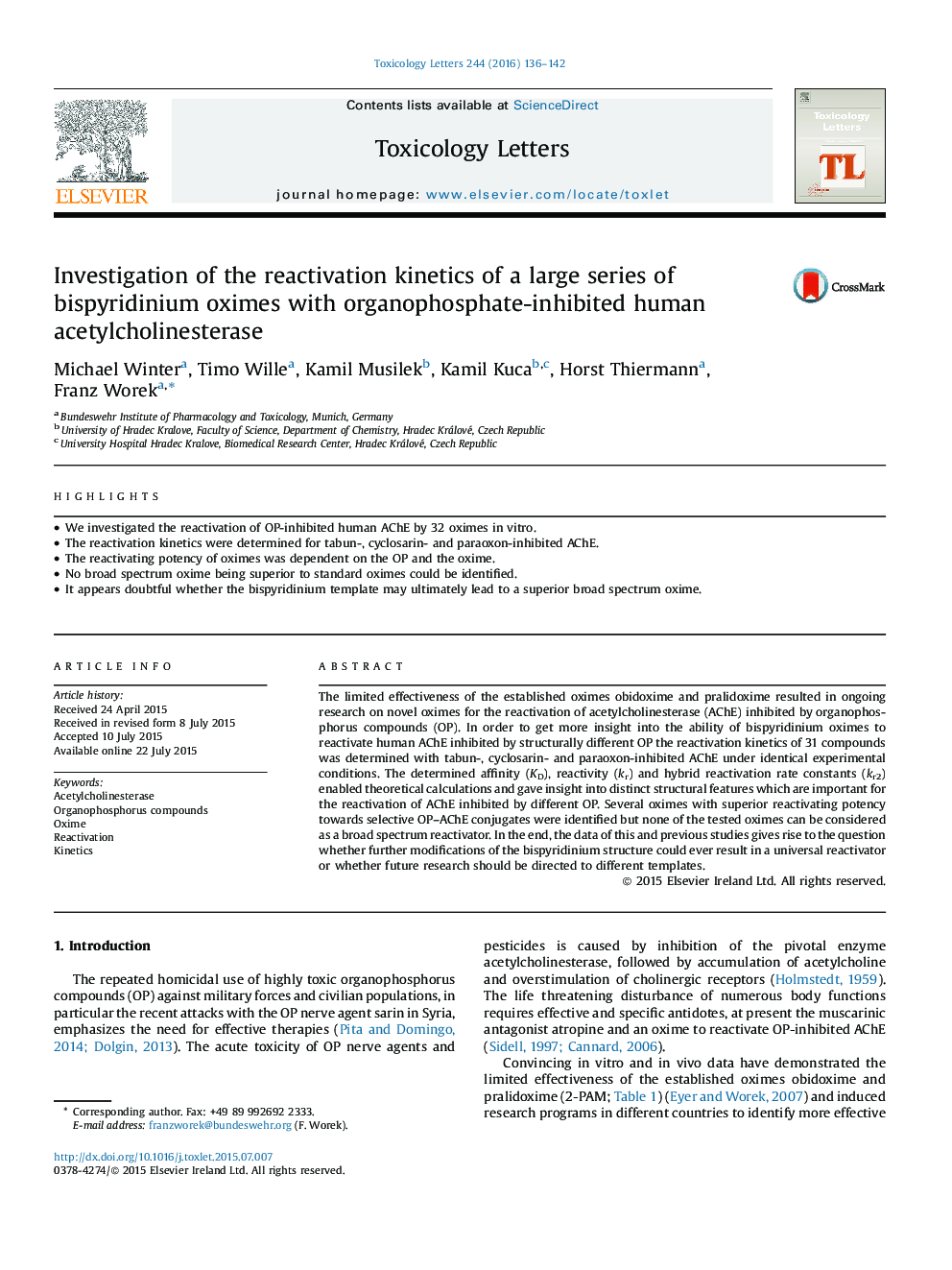| Article ID | Journal | Published Year | Pages | File Type |
|---|---|---|---|---|
| 5859856 | Toxicology Letters | 2016 | 7 Pages |
â¢We investigated the reactivation of OP-inhibited human AChE by 32 oximes in vitro.â¢The reactivation kinetics were determined for tabun-, cyclosarin- and paraoxon-inhibited AChE.â¢The reactivating potency of oximes was dependent on the OP and the oxime.â¢No broad spectrum oxime being superior to standard oximes could be identified.â¢It appears doubtful whether the bispyridinium template may ultimately lead to a superior broad spectrum oxime.
The limited effectiveness of the established oximes obidoxime and pralidoxime resulted in ongoing research on novel oximes for the reactivation of acetylcholinesterase (AChE) inhibited by organophosphorus compounds (OP). In order to get more insight into the ability of bispyridinium oximes to reactivate human AChE inhibited by structurally different OP the reactivation kinetics of 31 compounds was determined with tabun-, cyclosarin- and paraoxon-inhibited AChE under identical experimental conditions. The determined affinity (KD), reactivity (kr) and hybrid reactivation rate constants (kr2) enabled theoretical calculations and gave insight into distinct structural features which are important for the reactivation of AChE inhibited by different OP. Several oximes with superior reactivating potency towards selective OP-AChE conjugates were identified but none of the tested oximes can be considered as a broad spectrum reactivator. In the end, the data of this and previous studies gives rise to the question whether further modifications of the bispyridinium structure could ever result in a universal reactivator or whether future research should be directed to different templates.
